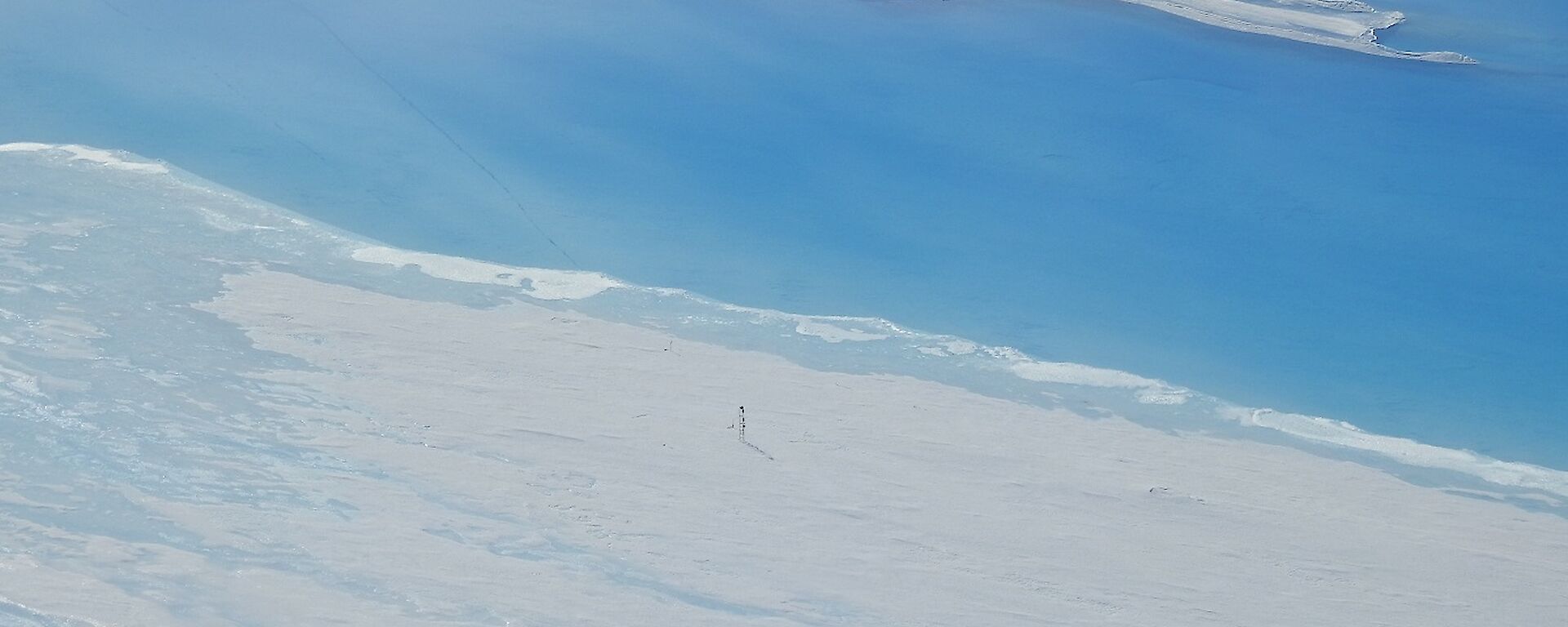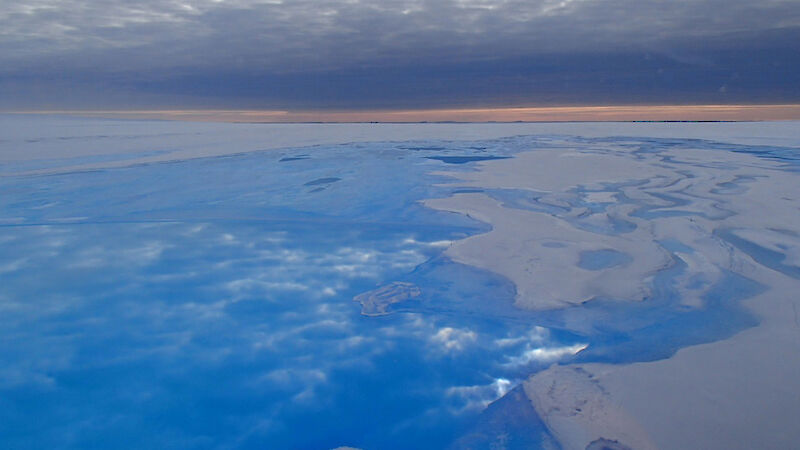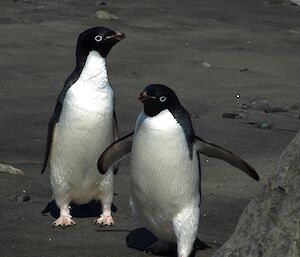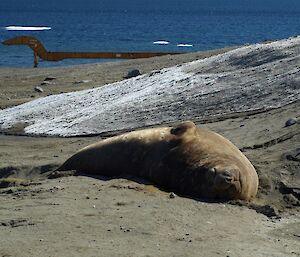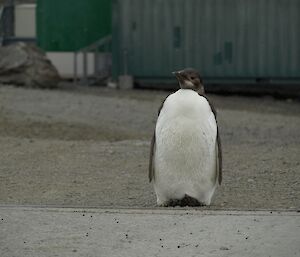10–17 January 2017
One of the frustrations of Antarctic science is that the work can be very stop-start. After a promising reconnaissance flight on 9th January to check out landing sites on the upper Sørsdal Glacier, we’ve been grounded for a week. We double check the equipment, process what data we can and wait for conditions to come round for another flight.
As our work heads further inland, the surface conditions will make things more challenging. The surface is now too wet to land at the sites Christian and Eleri used back in December. The tower at Twin Lakes is surrounded by a lake, and some of the planned sites for seismic work are completely underwater too. We’re having to adapt our plans to the conditions and pick some drier locations to work in. But the good news is that it should make for some very interesting results from Christian’s lake monitoring equipment.
Being stuck on station has its benefits, and we’ve spent plenty of time getting to know the local wildlife. The first elephant seal finally arrived this week and chose an unusual route to its moulting spot. Instead of coming straight from the beach, he headed over the hill behind station, and for a few nervous minutes seemed about to crash through our wastewater pipe. The plumbers watched in dread, but he successfully negotiated the obstacle and is now to be seen napping on the beach. Hopefully a few more friends will join him soon.
Our other visitor has been an emperor penguin, who caused chaos amongst the station traffic by taking a wander up the main road. There are plenty of Adélie penguins to be seen along the coast, and usually skuas and Wilson’s storm petrels flying around too. These last two often come out to visit us on the glacier when we’re working. It’s strange to see them flying over the ice, where they surely can’t expect to find any food. Reading Sir Douglas Mawson’s account of his 1911–14 expedition, skuas were spotted even higher on the ice sheet, over 100km from the sea! Back then they tried to catch them to supplement their food rations, but we’re happy with a few chocolate bars and dinner back on station.
Davis also celebrated its 60th anniversary on 13th January. You can see some photos of how the place looked 60 years ago in Icy News. It’s hard to believe how big the changes have been since then, and I’m very grateful for our comfortable quarters and the fantastic catering from our chefs. The best news is that the forecast is for good weather in the week ahead, so we have our fingers crossed that the geophysics surveying can carry on soon.
Dr Sue Cook

